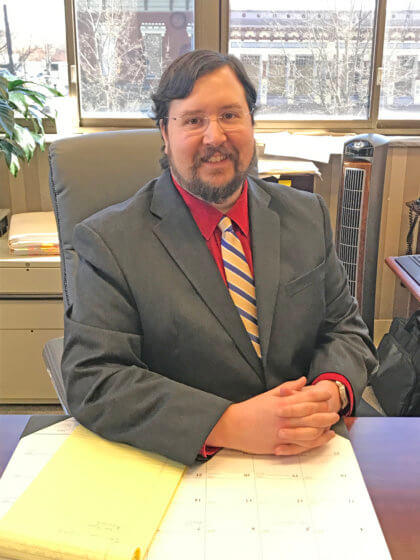Submitted by the Bond & Botes Law Offices - Friday, October 5, 2018
 While the process of filing and successfully completing a bankruptcy case can be difficult and complicated, it is usually fairly simple and straightforward to qualify for bankruptcy. At Bond and Botes, Bankruptcy is our specialty. So when I’m meeting a prospective client, I can usually determine what types of case a person is eligible for after a short conversation. In consumer bankruptcy, a person can file for relief under either Chapter 7 or Chapter 13. Assuming you’re eligible for both types of case, which should you file?
While the process of filing and successfully completing a bankruptcy case can be difficult and complicated, it is usually fairly simple and straightforward to qualify for bankruptcy. At Bond and Botes, Bankruptcy is our specialty. So when I’m meeting a prospective client, I can usually determine what types of case a person is eligible for after a short conversation. In consumer bankruptcy, a person can file for relief under either Chapter 7 or Chapter 13. Assuming you’re eligible for both types of case, which should you file?
About Chapter 7 Bankruptcy
Chapter 7 is the most common type of case filed nationwide. I typically advise prospective clients that if they’re eligible for Chapter 7 it is a good idea to file that kind of case. As far as legal proceedings go, a Chapter 7 case is relatively quick. Most Chapter 7 cases take only about 4 months from filing to discharge. Once you receive a discharge, the negative accounts will drop off of your credit report. Discharged debts are not allowed to continue to report negatively against you. Chapter 7 also enables you to start rebuilding your credit faster. Contrary to urban legend, there is no waiting period for using credit after filing a Chapter 7 case. Technically a person could go out and buy a new car the day after filing. Although in reality it makes better financial sense to wait 6-9 months before making any such large financial commitments.
Filing for Chapter 13 When You're Eligible for Chapter 7
So why file a Chapter 13 debt consolidation if you’re eligible for a Chapter 7? First, if you’re behind on payments for a debt you want to keep and pay (such as your vehicle or home mortgage), then Chapter 7 doesn’t have many beneficial provisions to help you. The Bankruptcy Court generally takes a “hands off” approach for debts you want to keep. If you can reach an agreement with the creditor then that’s fine, but the Court won’t step in to help. If you can’t get current on your debt before the case ends in 4 months, then the debt will likely be discharged. So you may not owe anything else for your vehicle, but the finance company could come and repossess it. Chapter 13, in some situations, can also reduce the amount you have to pay for your vehicle if you’ve owned the car for more than 2 and a half years.
Second, the Court does not have the authority to take and sell any of your property in Chapter 13. In a Chapter 7, valuable property such as land or expensive vehicles can be sold by the Court, and the sale profits will be used to pay your debts. Chapter 13 functions as a trade-off. Your property is protected, but you have to follow the repayment plan in order to receive a discharge.
Cons and Consequences of Chapter 13 Bankruptcy
At first glance Chapter 13 may seem like a more attractive option, but Chapter 13 comes with a lengthy time commitment. The shortest a Chapter 13 case can be is 36 months, or 3 years. Most cases last for 5 years (60 Months). This means that for at least 3 years, the Court is going to be looking over your shoulder at almost every financial decision you make. Need to finance a new car since yours broke down? Not unless the Court approves it first. Insurance company going to pay you the proceeds from your policy after a car wreck? The Court will decide where that money goes and whether or not you get any of it to buy a replacement car. Want to sell your house and buy a new one? The Court has to approve both the sale of your current house and the purchase of the house you plan to move into.
Obviously there is no way to predict the future, but a lot can change in 5 years. If you think you might be moving or changing jobs or careers within the next few years, then I would definitely advise you to avoid a Chapter 13 until life is a little more stable.
At Bond and Botes, we’ve got experience guiding people through all types of cases and situations. An internet search may answer some basic bankruptcy questions, but nothing can compare to a face-to-face conversation when it comes to learning the hidden benefits and pitfalls of filing a case. We offer free initial consultations with our attorneys at each of our convenient locations in Alabama, Tennessee, and Mississippi. Schedule an appointment today to find out how we can help you get your finances back on track.
This post is intended for general information only and does not constitute legal advice. To discuss your specific situation, we encourage you to schedule a confidential consultation with an attorney.

 1-877-581-3396
1-877-581-3396

